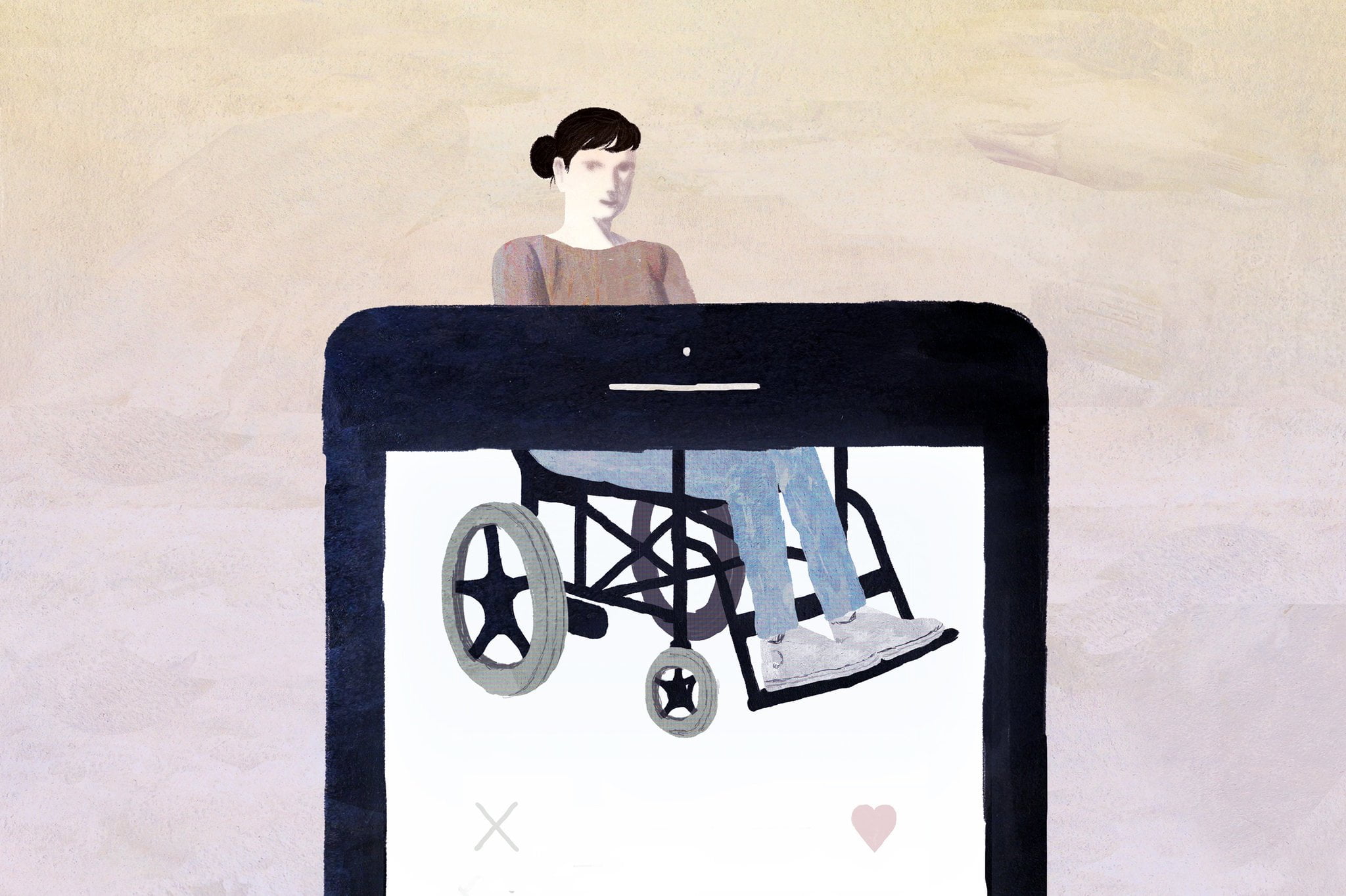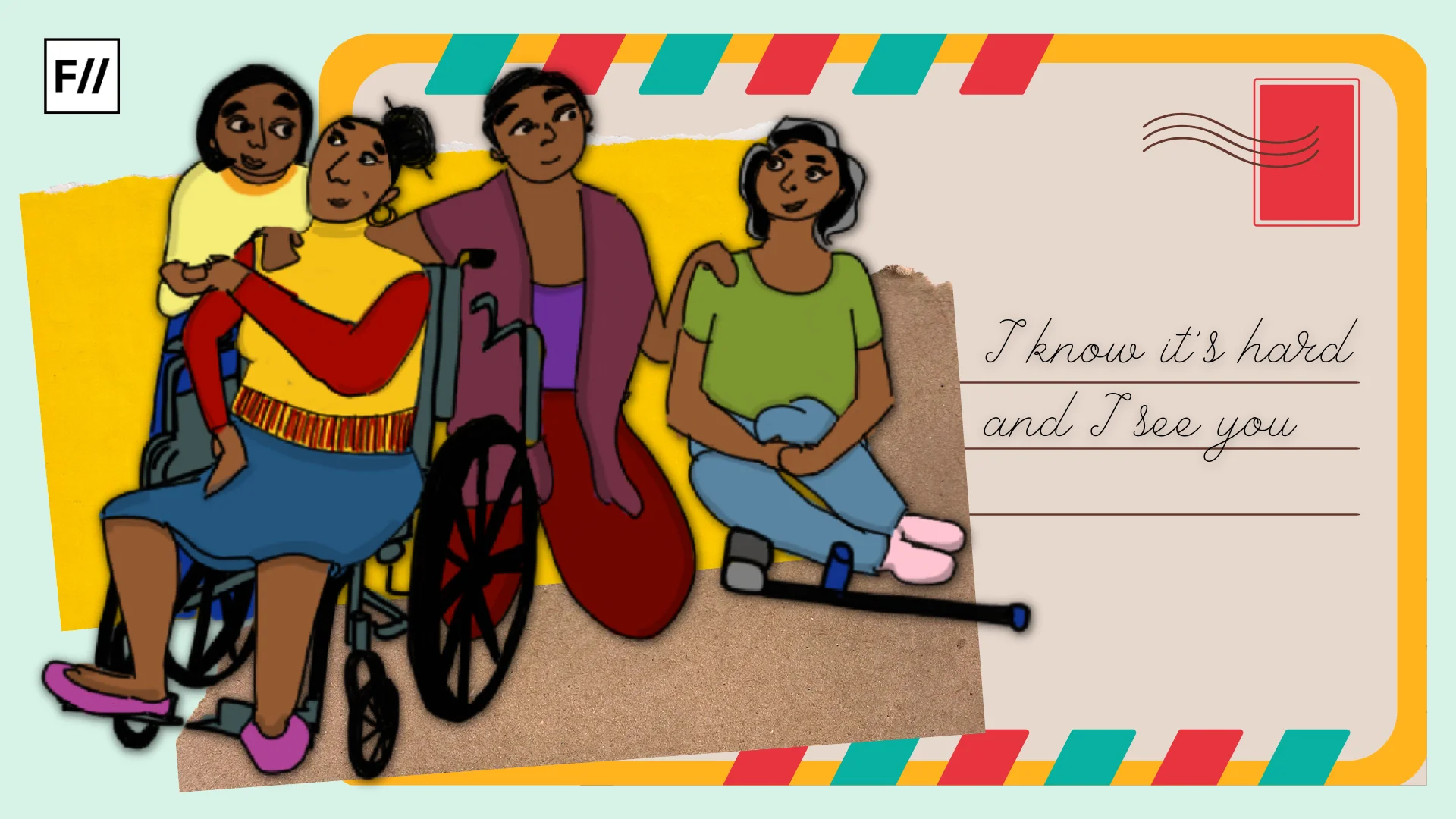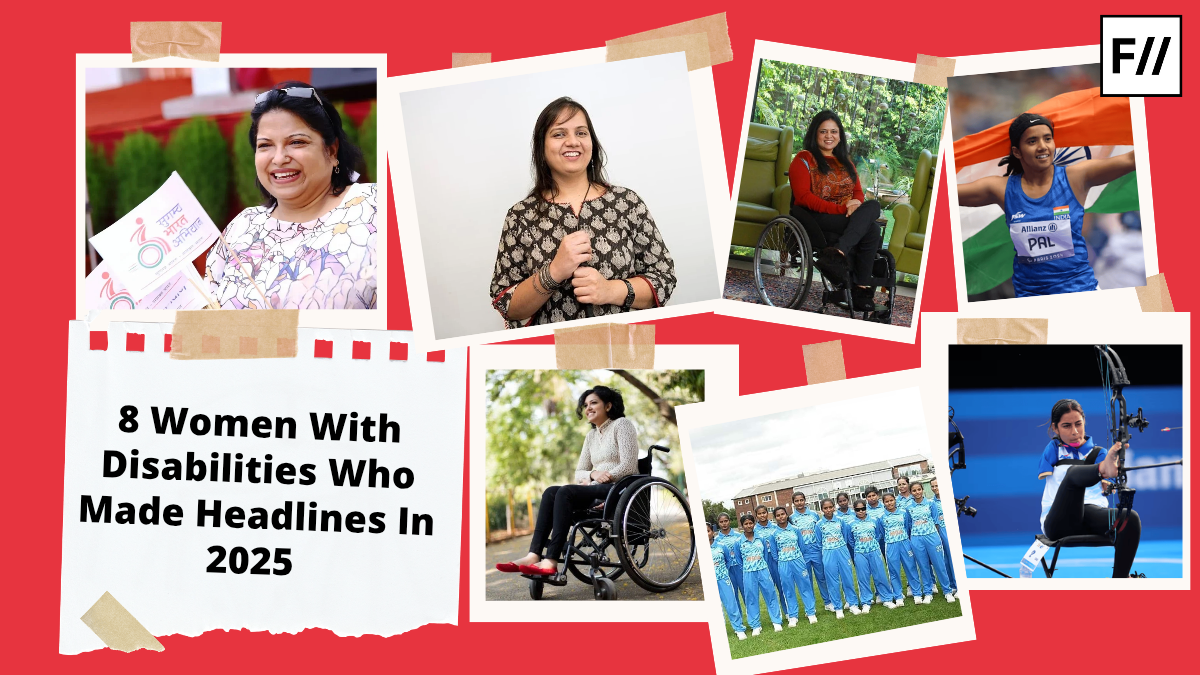One fine weekday afternoon, while my best friends and I were hanging out, my friend insists on making us join Tinder. This was about two years ago and unsurprisingly, it was the guy in the group encouraging his two female friends to log on to the online dating app.
I was extremely apprehensive, not because I was wary of ‘online dating apps’ in general, but because I already had trouble engaging in conversation with people for the designated purpose of ‘dating’. Hesitantly, I allowed my friend to create an account in my name.
The Tinder account was linked to my Facebook profile and so photos from my profile were imported to Tinder. Once I got the hang of the app, wherein your ‘matches’ are based completely on the profile of the other person, I started to use it and soon enough, got quite a few responses.
As part of my short tryst with Tinder, I was unapologetic to my matches about my disability.
I was just getting used to ignoring creepy messages from certain people when one message from a person I thought I was having a good conversation with, put me on the spot all over again. This person asks me why I was in a wheelchair in one of my pictures. This was another one of my apprehensions when I was joining the app, coming to life through this conversation.
As part of my short tryst with Tinder, I was unapologetic to my matches about my disability. My conditioning required them to let them know before-hand that they were talking to someone in a wheelchair.
I had to face a host of reactions to this piece of information conveyed to my friends on the other end of the app. Some were sympathetic, some extremely curious, resulting in a variety of awkward questions, very few indifferent (these are the few friends I made on that app) and some who took off the moment they knew about my disability.
My experience with Tinder helped me come to some important realizations. First, no matter how apparently ‘normal’ a life you lead, when it comes to questions of even meeting someone for coffee, a wheelchair gets in the way. People either view you as a person they want to maintain distance from or just maintain an adequate amount of friendship, not wanting to get too involved.
Also Read: Sixth Happiness Film: Disability And Sexuality Are Not Mutually Exclusive
On the contrary, there are some overly-friendly ones who would want to know that “if we went out on a date, would he have to physically handle me in order to help me transfer from the Uber to the wheelchair?” and vice-versa. I do not know if this was merely an assessment of the presence of any opportunity for physical contact with me or a ploy to find out “how disabled I am” and so “what kind of help I’d be requiring”.
When I was finally dating someone in college, people asked my then boyfriend if he had a wheelchair fetish. Uncomfortable questions of how “little action” he must be getting were commonplace. The idea is that more visible the disability, the more are conditions of “normality” imposed on you.
Sexuality in particularly is seen to be completely absent, or severely reduced or at least in the form of a ‘fetish’. So there is a simultaneous occurrence of invalidation and objectification. On one hand, they refuse to see you as being capable of forming sexual relations, and then, they reduce you to an object that a man desires, not because you are desirable but because you come with an accessory that forms a part of his fetish.
When it comes to questions of even meeting someone for coffee, a wheelchair gets in the way.
Technological invasion into the world of sexuality, particularly through apps like Tinder could be seen as a boon for the disabled community. You can form friendships, without having to reveal to the other person that you may be differently abled. But why should such an identity be a problem is a question that we need to answer first.
Is it possible to argue for a separate app, functioning as Tinder, for the disabled (much like Grindr)? However, this just reminds me of a Voldemort like magical world where the pure-bloods should not associate with the “mudbloods”.
Hence, societal conceptions of disability have traversed their way into every sphere of our lives. The bigger problem is how these constructions are not even viewed to be problematic by a majority, which does not see this minority population as an important stakeholder in the sexuality discourse.
Also Read: In Conversation With SexDis On Sexuality, Disability And Accessibility
Featured Image Credit: The New York Times
About the author(s)
Yashvi is a corporate lawyer based out of Delhi.





In case someone is looking for dating apps especially for people with disabilities, there is Inclov. Though I don’t know how useful it is.